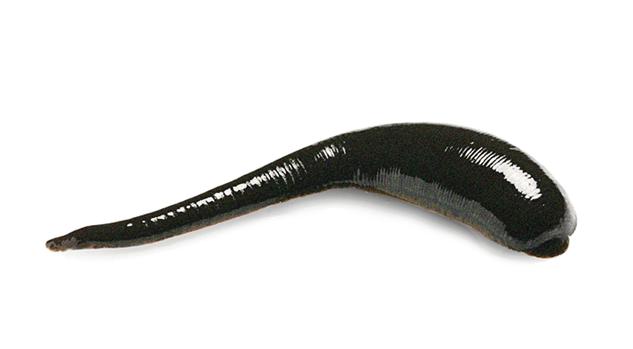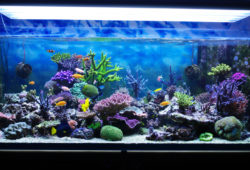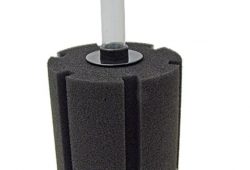Leeches
In the following article you will find some basic information on Leeches. Within the course of putting together your aquarium setting, you will introduce a variety of living organisms: plants, invertebrates, “living” rock and alternative media for helpful bacteria, and after all fish. However, as in any atmosphere, parasites may notice their manner in. One common parasite which will be damaging to your aquarium environment and harmful to your fish is that the leech.

A leech is an annelid, or segmented worm; it’s flattened, with a sucker on both the tail and also the mouth. Leeches propel themselves forward by using both suckers, manufacturing a motion just like that of an inchworm. Most live in water; there are freshwater, saltwater, and terrestrial varieties. Several leeches, given the chance, will attach themselves to humans and other creatures, sucking the host creature’s blood.
It absolutely was common medical follow within the Middle Ages to “bleed” a patient by attaching a leech to the patient’s body and permitting the leech to drink his fill. Medieval medication wrongly held that the body was composed of 4 principal fluids, or “humors,” and that an imbalance among these humors was the most reason for disease. Blood was one amongst the humors and was typically thought to be in excess; so, bleeding a patient helped bring the extent of blood back to balance with the opposite humors.
Leeches are typically simple to spot in your aquarium: it’s unlikely you’ll see any of the larger varieties, but freshwater leeches that might find their approach into your aquarium will still be up to a pair of inches long. Leeches swim in an undulating motion. If they are connected to a fish, they will be heart-shaped, as they curl up onto your fish’s body, fins, or gills. The odd leech bite is not going to hurt your fish in any major manner, but an infestation will cause major issues, inflicting fish to become listless and thin. Leech bites will render fish inclined to different diseases; open wounds will become infected. And a leech will transfer microbial diseases from one fish to another.
Leeches would possibly 1st enter your tank via live food that comes from leech-infested waters. If you depend upon live food that you grow yourself, you’ll be able to greatly reduce the possibility of a leech infestation. Leeches can conjointly come back via new fish that you introduce, or new plant life.
Be certain to inspect new creatures or plants completely; if you are concerned, you’ll keep new fish quarantined for a amount of time before allowing them to mix with your existing specimens. And you’ll place new plants in a very potassium permanganate solution, 5 mg/l, for concerning an hour before introducing them to your tank. The potassium permanganate can kill any leeches that might be hiding within the foliage.
If you discover a leech attached to your fish, do not be tempted to remove it with a pair of tweezers (or pliers!); leeches burrow themselves into your fish’s body to draw blood, and forcible removal will seriously hurt your fish. Instead, bathe your fish for concerning fifteen minutes in an exceedingly 2.five percent saline solution. This could cause the leech to discarding, or to loosen its grip such that you’ll be able to ease it out without leaving any leech parts inside your fish.
If your fish are sensitive to salt — as an example, sure species of catfish — then saline answer will not work; you will want to medicate your entire tank by adding 1 milligram of trichlorofon for each gallon of water in your tank. The trichlorofon may be harmful to some plants, thus it might be best to get rid of the plants initial and treat them with potassium permanganate, as described above.
Though leeches aren’t everybody’s plan of an ideal aquarium pet, they’re attention-grabbing creatures in their own right, and some folks do keep them, sequestered in their own tiny aquarium of course. They’re easy to stay and don’t demand much food: a tiny piece of meat or an earthworm each week is typically enough to stay a leech happy.
They are quick to hunt out food sources, but, and can answer your finger rubbing along the skin of the tank furthermore as to shadows passing overhead. If you retain substrate in your leech tank, the leeches tend to burrow; they are also excellent scavengers. Most leeches are freshwater, however as a result of there are also marine varieties, be certain you recognize what sort of water your leech will need.



